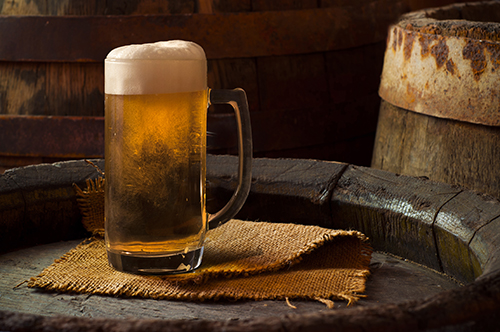
I don’t have any inside information but I do believe there are lessons in history. After prohibition, new breweries sprouted up everywhere. They were local, because the interstate highways weren’t built yet and long distance transportation was prohibitive. By the 1950s, a company from St Louis saw the future and wanted to own it.
First, they needed to get rid of those local breweries. Budweiser entered new markets with great advertising and aggressive pricing. They had the resources to create price competition to squeeze out the local brewers’ profit margins, while offering an equally good and well-marketed product. (Remember that the Budweiser of yesteryear was a different beer than it is today—back then it had a lot more flavor—what we would call today, a well-balanced sessionable lager). In city after city the local breweries toppled. The monster got bigger until they gained almost 50% share of all beer in the 1990s and there was almost nobody left. Now, Budweiser is a shell of its former self and Bud Light is rightfully derided as not much more than water, losing a million barrels per year.
So today, if you are Anheuser-Busch, now AB InBev, the largest global brewer, what do you do? You try to foul it up for everyone else and make it your own. Start getting rid of those local breweries.
ABI needs high margin volume to make up for losses in their core brands. They can’t create a credible craft brand that consumers will accept. Not yet anyway. Their goal is to “mainstream” craft beer, get prices down to squeeze the less efficient competition, dominate chain features, exercise the power they have over their distributors and make it harder for everyone to do business.
The truly independent brewers who fostered the craft beer movement built brands that consumers respect; built brewpubs that keep’em coming back for more and created a strong consumer following. Then ABI steps in, writes a big check and stays in the building quietly while the founder remains the face of the brewery. For a while. But behind the curtain, Goose Island is being made in the Budweiser breweries along with Kona and others. Enter economies of scale and the ability to drive prices down.
This is a long-term play. The next generation, say today’s 16 year olds, will be 21 in five years. Will they know Goose Island was once a pioneering craft brewery that is now part of ABI? Will they care? Who was John Hall anyway?
The big craft brewers like Boston Beer, Sierra Nevada, New Belgium and Bells are all in a strong position to withstand all this. But their founders may exit sometime. How will their successors battle it out in this new, tougher environment?
For the other 3,000+ breweries, their ability to command a price premium based on innovation, consumer buzz and consistent branding will determine their outcomes. They will need to compete in a much harsher environment.
In the end, the consumer always decides. As the craft beer revolution evolves, newer craft beer consumers may be more willing to accept good “craft” beer, regardless of who makes it. Be ready, the next five years will not be anything like the past five.
Mike Mitaro
President
Brewers Advisory Group, LLC
May, 2015
Brewers Advisory Group is a consulting group that specializes in helping craft brewers build value in their businesses. Contact Mike Mitaro mailto:[email protected]
http://www.brewersadvisorygroup.com



Agreed. People are worried about AB buying every craft brewery, etc. People say they won’t buy AB owned craft (I don’t personally buy it).
The point is that it doesn’t matter…. If AB buys enough medium to large craft breweries to flood the market and out price the local option things could get rough if the local products arent really differentiated.
PS, New Belgium’s founders have already exited pretty much in that even if Kim wanted to sell to AB she couldn’t because she doesn’t own any of NBB…. The employees do.